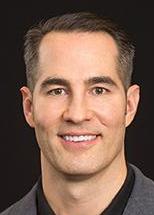Plus: The treatment experience for Blacks, and why veterans are less likely to seek care for mental health and substance issues
By William Wagner
In a distinct brand-new research study, scientists from the University of Michigan have actually identified that high school trainees who play sports are most likely to misuse prescription stimulants in the years following their graduation.
We likewise focus today on the experiences of Blacks in addiction treatment, and the hesitation of veterans to seek help for mental health and substance issues.
From the American Journal of Public Health:
The Link In Between Preparation Sports and Stimulant Misuse
It’s thought to be the very first research study of its kind, and the outcomes are as odd as they are perturbing: People who play sports in high school are most likely than non-athletes to misuse prescription stimulants in their 20s. This is especially real for trainees who play contact sports such as football, ice hockey, lacrosse and fumbling; they’re 50% most likely to later on dive into prescription stimulants, according to the University of Michigan research study

The scientists collected information from 4,772 U.S. high school senior citizens in between 2006 and 2017 from the Keeping Track Of the Future research study. Eleven percent of the participants who played contact sports stated they had actually misused prescription stimulants in the previous year; by ages 21 and 22, that number had actually increased to 18%.
The concern is, why professional athletes? To that, the research study provides no definitive responses. However after evaluating the information, Sean Esteban McCabe, PhD, director of the Center for the Research Study of Drugs, Alcohol, Smoking Cigarettes and Health Department of Health Behavior and Biological Sciences at U-M and senior author of the research study, understands at least this much: “Increased prescription stimulant misuse following high school warrants continuous tracking throughout young the adult years, specifically amongst professional athletes.”
From the Journal of Substance Abuse Treatment:
The Experiences of Blacks in Treatment
The Black experience in addiction treatment is an location that, regrettably, has actually gotten fairly little attention from academics. That’s partly why a research study out of the University of Kentucky is so essential. It’s providing Black grownups an chance to share their ideas on theirtreatment for opioid misuse Thirty-nine Black males and ladies at first were spoken with, however the research study, moneyed by the National Institute on Substance Abuse (NIDA), is continuous and ultimately will consist of 800 individuals.
” The males and ladies in our research study reported less success in their experiences with treatment when it was mandated, versus something they looked for since they desired it for themselves.”
— Candice Hargons, University of Kentucky
Up until now, the research study has actually discovered 3 primary styles:
- Preparedness for modification. “The males and ladies in our research study reported less success in their experiences with treatment when it was mandated, versus something they looked for since they desired it for themselves,” states Candice Hargons, PhD, a co-author of the research study.
- Provider qualities. “There is an excellent requirement to hire more Black therapists,” states Natalie Malone, PhD, a co-author “Numerous of the individuals in this research study had never ever or hardly ever came across a provider of color. Numerous talked about requiring to feel the therapist will comprehend them when talking about experiences of bigotry, discrimination and microaggressions.”
- Relational assistance. “People wanted encouraging relationships with peers, family, and/or partners to enhance treatment experiences,” the research study states.
From Psychology of Addictive Behaviors:
Veterans Are Unwilling to Seek Treatment
A research study from the University of Missouri discovered that military veterans hesitate to seek care for mental health and substance issues, consisting of alcohol use disorder (AUD), substance use disorder (SUD) post-traumatic stress disorder (PTSD), anxiety, depression and sleeping disorders. They are more ready to get help for physical conditions such as persistent pain.

” The bulk of individuals showed they would want to seek treatment for both physical and mental health issues. Nevertheless, they reported substantially higher desire to seek treatment for physical than mental health conditions,” states primary detective Mary Beth Miller, PhD, primary detective for the research study.
The factor? “We hypothesize that since sleep and alcohol issues are common [among veterans], they might be stabilized or decreased to the level that they are no longer considered as issues–or at least issues that require treatment,” Miller states.
The scientists evaluated 334 veterans from 46 states. Sixty-six percent of the individuals were males, and around 70% were individuals of color.
Leading image: Leah Hatteberg
